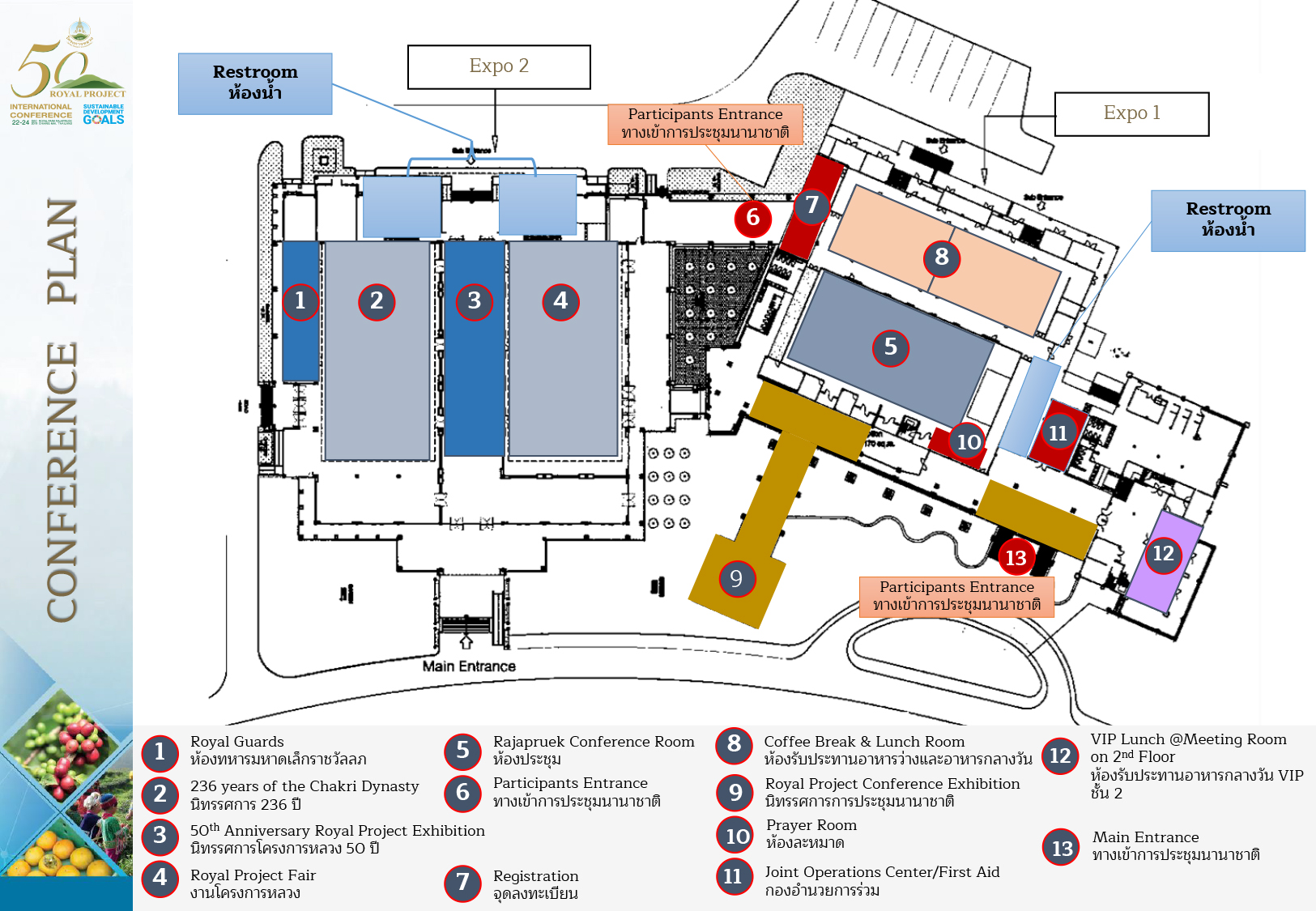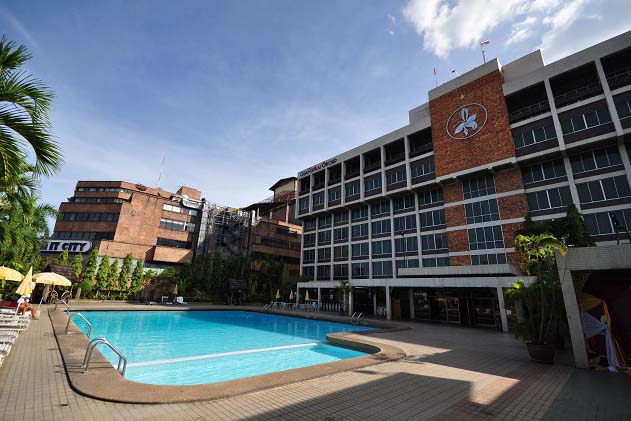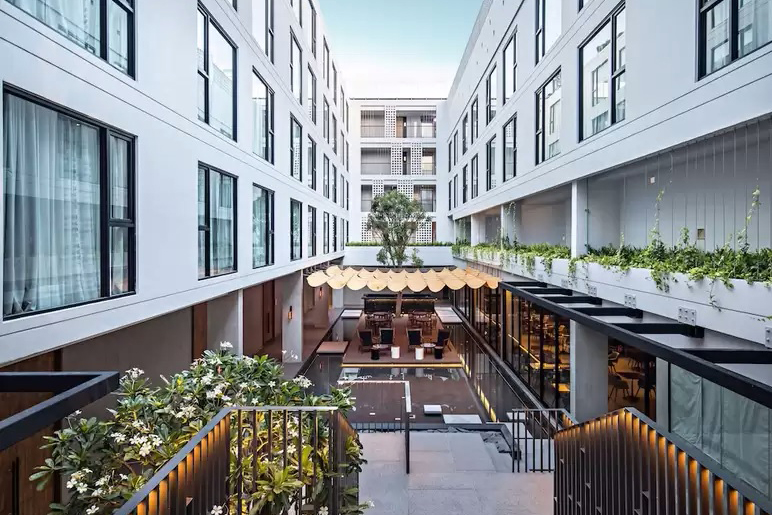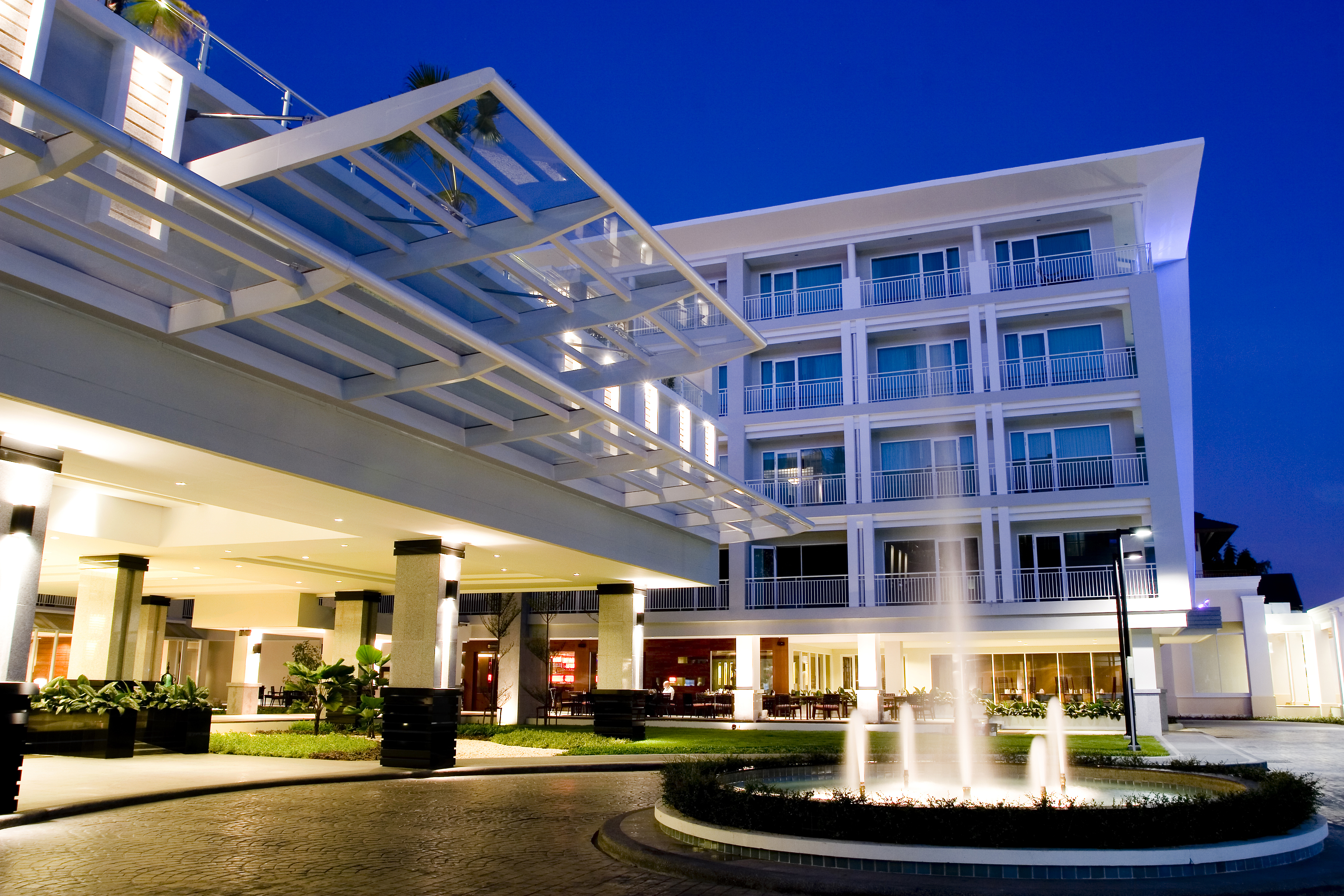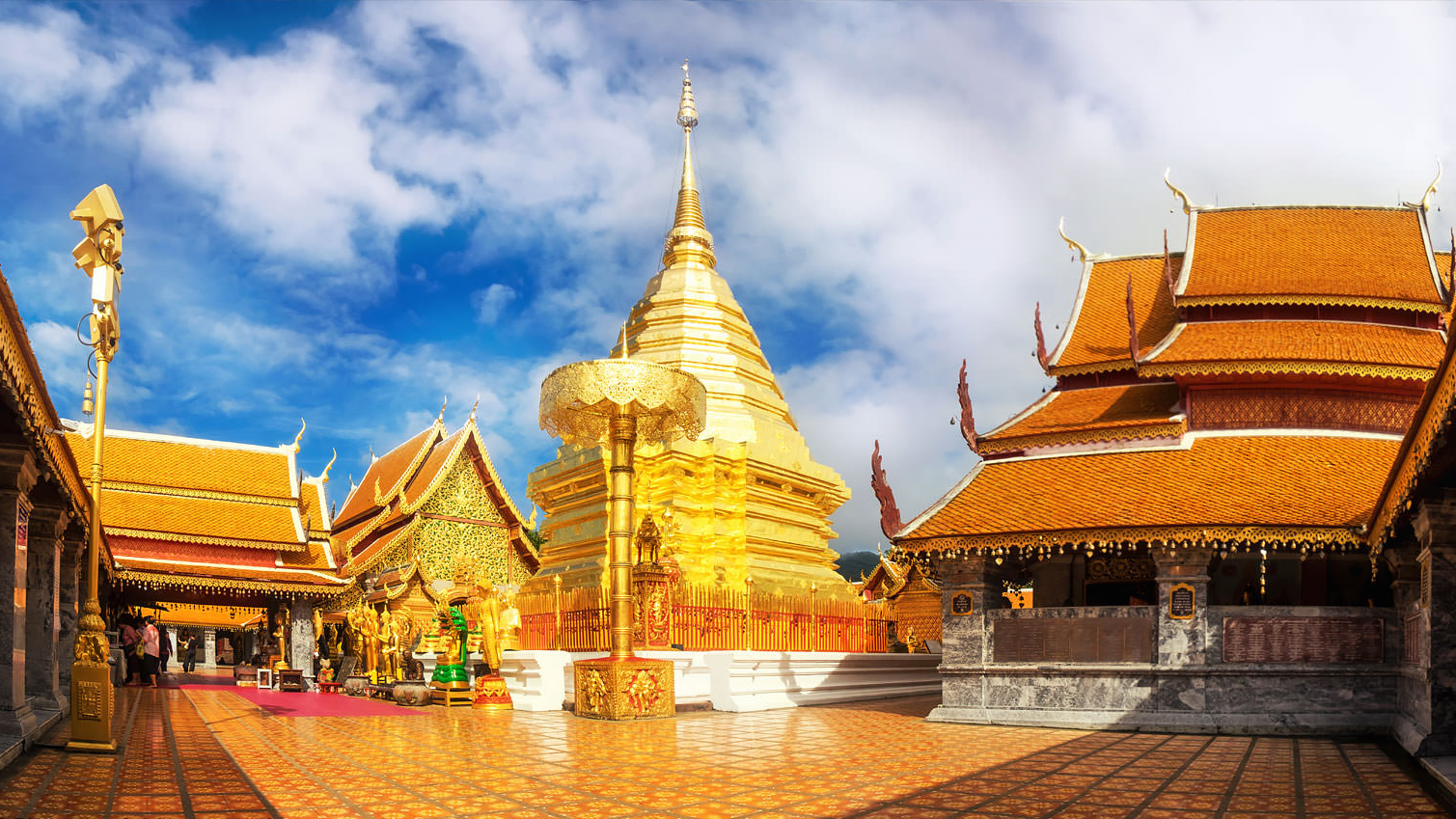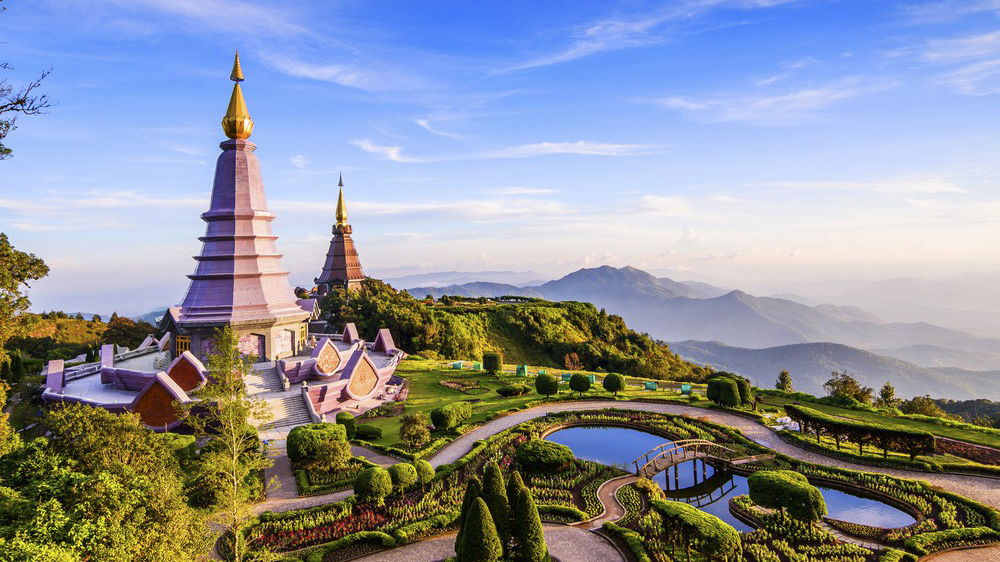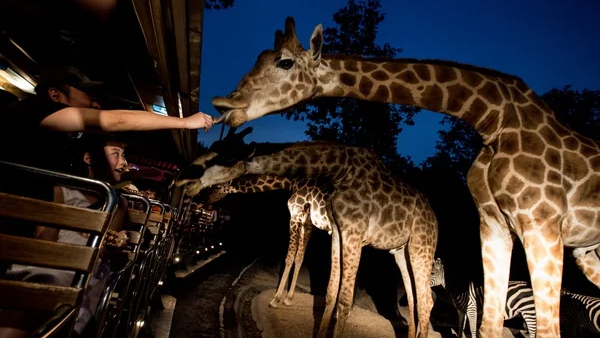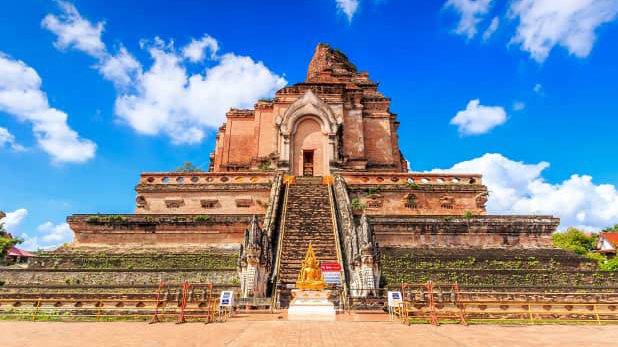
- Welcome to RPF Int'l Conference
- Conference Information
- Field Visit
- General Information
- Accommodations Information
- Useful Information
- Conference Downloads
Welcome Message
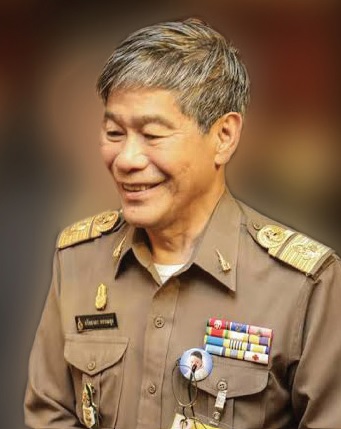
Dear Delegates,
Alternative development is a critical component of a comprehensive drug control strategy. When farmers engage in illicit crop cultivation, they typically do so because of poverty and the need to meet basic needs. It is the absence of legal and sustainable income opportunities that forces them to engage in cultivation of illegal drugs causing a problem for the country, the region and the world. The slash-and-burn technique of clearing virgin forests as used by the indigenous hill tribe people living in Thailand’s mountainous North also has an increasingly adverse effect on the environment, resulting in deforestation of vast watershed forests.
The Royal Project is the earliest and most innovative project initiated by His Majesty King Bhumibol Adulyadej The Great in the year 1969 aiming at addressing those problems for over 50 years, under the holistic model towards sustainable and effective approaches to alternative development, from the introduction of new cash crops to improve the quality of life of the highland people, the water and soil conservation, and the preservation of watershed forests. A wide variety of farm activities which yield larger profits than opium has been introduced to the hill farmers as well as providing assistance in the form of growing and marketing techniques.
His Majesty King Maha Vajiralongkorn Phra Vajiraklaochaoyuhua (King Rama X) has made firm commitments to nurture, conserve, and extend the work of the Royal Project Foundation to ensure its continued operation, offering the highland people with a better living while generating positive consequences to other countries regionally and globally.
The results can be seen clearly not only in tribal communities, but also in the supermarkets of big cities and in numerous new export products. The Royal Project’s effectiveness has gained recognition worldwide for its success in eradicating opium poppies and improving the well-being of the people. The UNODC removed Thailand from the list of significant opium producing countries in 2003.
The International Conference on Rising to the Challenges of Sustainable Development Goals (SGDs) through Sustainable Highland Development: The Royal Project Model, held in Chiang Mai, Thailand during 22 – 24 December 2019 is intending to provide an important platform for portraying the experience of Royal Project’s 50-year journey on highland alternative development shedding light on how the Royal Project Model can be a means to realizing the SDGs. It is also to promote an exchange of knowledge, experience, and best practices among different stakeholders to create a model that is sustainable and inclusive for the prosperity of the highlanders regionally and globally.
I take great pride in welcoming all the delegates to the Conference. I certainly believe that the Conference will bear fruitful results and lay the firm groundwork for future international partnership in employing alternative development approach to assist countries with persisting drug problems.
Chairman of the Boards of Directors
Royal Project Foundation
December 2019
Participants Announcement
Download 'Participants Announcement' document (PDF; 9.6mb; Last updated on: 7 December 2019)
- Background and Objectives
- Conference Programme
- Executive Summary
- Conference Venue
- VIP Entrance Route
- Participants & Staff Entrance Route
- Conference Plan
Background

The Royal Project Foundation (RPF) is based in the north of Thailand, founded by His Majesty King Bhumibol Adulyadej The Great in 1969, aiming to improve the quality of life of hill-tribe people by diminishing opium growing and reviving natural forests and water resources. For over five decades, a good number of national and international organizations have recognized the achievements of the Royal Project Foundation as the best practice in sustainable highland development.
His Majesty King Maha Vajiralongkorn Phra Vajiraklaochaoyuhua has made firm commitments to nurture, conserve, and extend the work of the Royal Project Foundation to ensure its continued operation, offering the highland people with a better living while generating positive consequences to other countries regionally and globally.
On the occasion of the Royal Project’s 50th Anniversary, the Royal Project Foundation and its partner, Highland Research and Development Institute (Public Organization) (HRDI) consider it is timely to organize the International Conference on Rising to the Challenge of Sustainable Development Goals (SDGs) through Sustainable Highland Development: The Royal Project Model. This Conference will provide a platform for sharing to other organizations, both internally and internationally, successful endeavours, knowledge and experiences of the Royal Project on promotion of illicit crop replacement and support a holistic approach for sustainable highland development. Keynote Speakers from international organizations will be invited to share their experiences on SDGs on highland development. Moreover, representatives from the countries that have followed the Royal Project model and those practicing their alternative development model will also be invited to facilitate knowledge sharing, lessons learnt, and good practices for sustainable highland development in the region and the world.
Objectives
- To commemorate the benevolence of His Majesty King Bhumibol Adulyadej The Great’s profound wisdom and graciousness in bestowing the Royal Project for the benefit and happiness of the Thai highland people.
- To demonstrate deep gratitude and respect to His Majesty King Maha Vajiralongkorn Phra Vajiraklaochaoyuhua for his firm commitments to nurture, conserve, and extend the Royal Project Foundation for the happiness of his subjects.
- To disseminate successful outcomes of the Royal Project highland development model that align with the SDGs.
- To demonstrate the expansion of knowledge and experiences of the Royal Project to other highland areas of the country beyond the scope of the Royal Project Foundation by Highland Research and Development Institute (Public Organization).
- To promote an exchange of knowledge, experience, and best practices among different stakeholders to create a model that is sustainable and inclusive for the prosperity of the highlanders regionally and globally.
Expected Results
- Knowledge and experiences for over 50 years of the Royal Project on sustainable highland development will be shared, hoping to be contributive to other interested parties internally and internationally.
- Extensive exchanges of knowledge, views, and experiences will be offered among experts, professionals and participants from various international countries and organizations.
- Strong connections and networks between international organizations and other relevant stakeholders on sustainable highland development will be made, leading to the SDGs.
Conference Programme
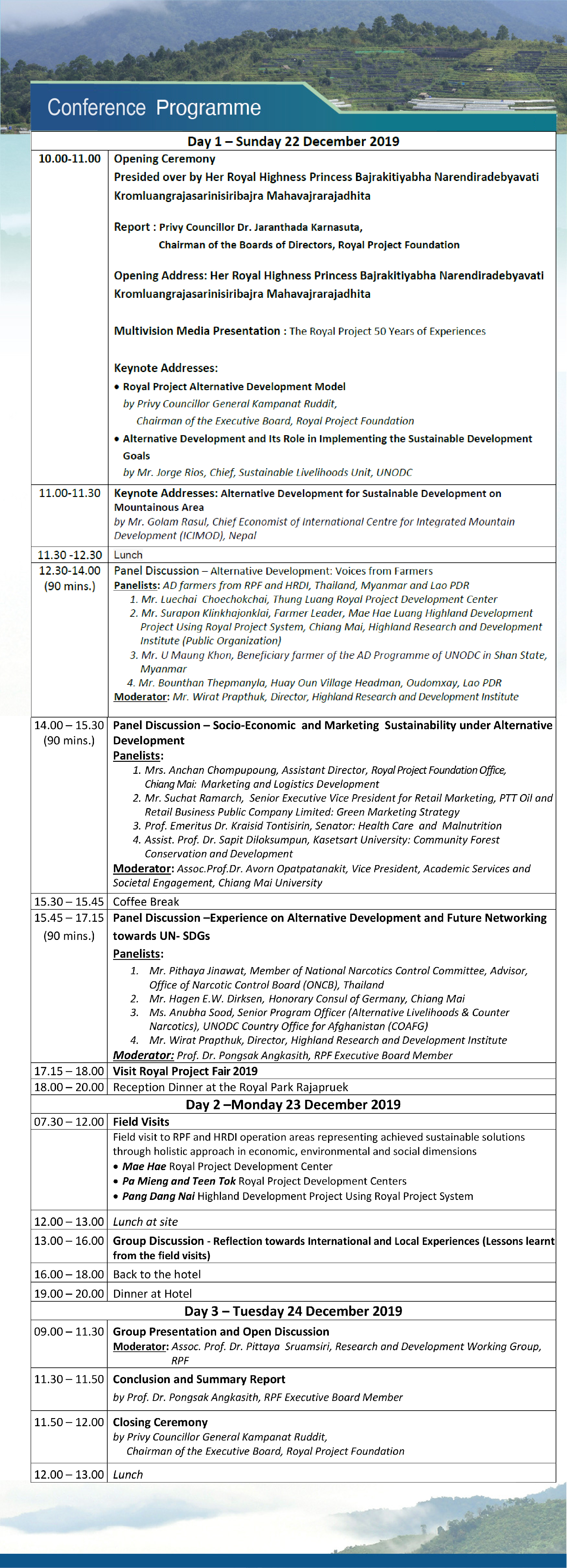
Executive Summary The Royal Project Model
Download 'Executive Summary The Royal Project Model' document (PDF; 4.5mb; Last updated on: 16 December 2019)
ดาวน์โหลดเอกสาร 'บทสรุปผู้บริหารโครงการหลวงโมเดล' (PDF; 4.7mb; Last updated on: 16 December 2019)
Conference Venue

The conference will be held
22 – 24 December 2019
at the Royal Park Rajapruek, Chiang Mai, Thailand
VIP Entrance Route
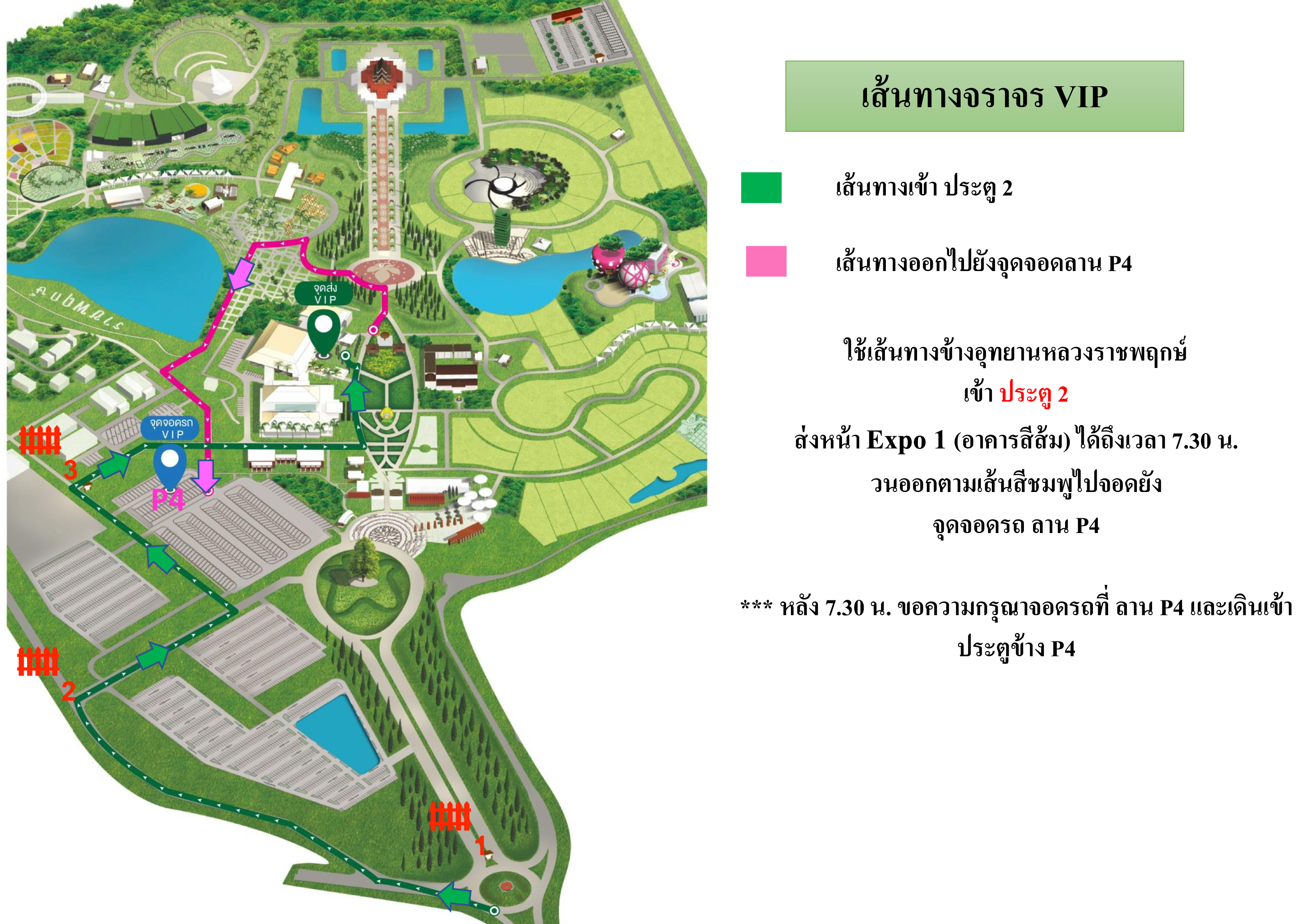
Participants & Staff Entrance Route
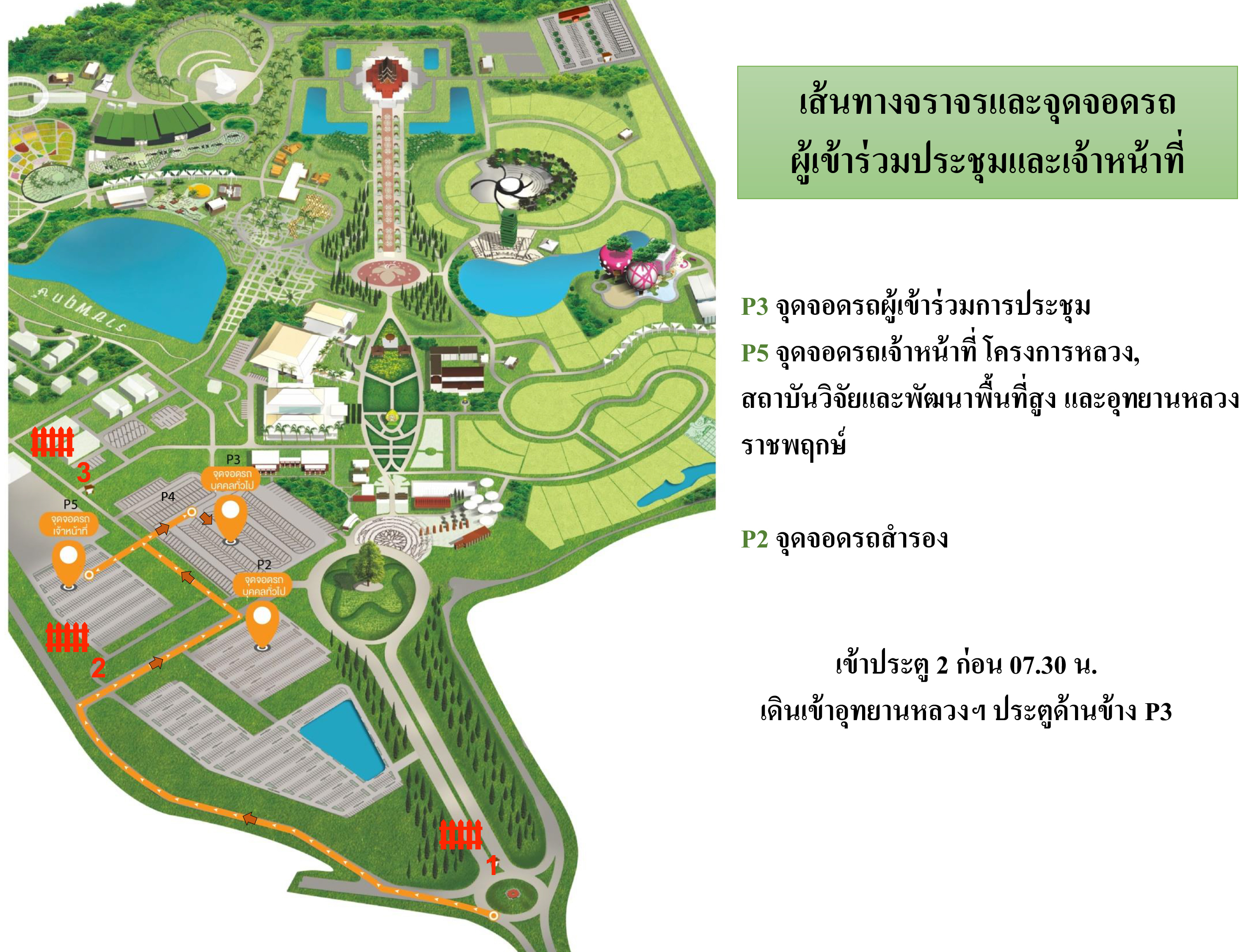
- Route I : Mae Hae
- Route II : Pa Miang & Teen Tok
- Route III : Pang Dang Nai
- Field Trip Registration Form
Route I : Mae Hae Royal Project Development Center, Chiang Mai Province
Monday 23 December 2019
Main focus : Economic aspect
Mae Hae is a Hmong village with 1,750 households. Mae Hae used to be an opium village where a slash-and-burn was generally practiced by the villagers. The whole of Mae Hae sits on a high areas surrounded by high mountain ranges with peaks of 1,400 + 1,500 meters above sea level.
The Royal Project Development Center, Mae Hae was established by His Majesty King Rama IX in 1978 to help hill-tribes grow alternative crops mainly temperate vegetables and fruits as replacement crops for opium and develop sustainable cultivation methods instead of the destructive slash-and-burn farming, to enable the farmers to increase their earnings, to improve their living standard and to promote reforestation. The Center works closely with farmers to establish farm produce with Food Safety Standards: Good Agricultural Practices (GAP) and McDonald G.A.P.
In the year 2018, 586 farmers under the responsibility of Mae Hae Royal Project Development Center produced about 3,500 tons of farm produces generating the value through the Royal Project markets at about 3 million US dollars and another 6 million US dollars through local market.
Routing in brief:
Direction to Mae Hae Royal Project
- Starting from the "Uniserv CMU", Chiang Mai University, Nimmanahaeminda Road, Chiangmai (assembly point)
- Head south-west and north-west
- It takes about 1 h 54 min (80.3 km) for the Mae Hae Royal Project center
Route II : Pa Miang & Teen Tok Royal Project Development Center, Chiang Mai Province
Monday 23 December 2019
Main focus : Environmental aspect
Pa Miang and Teen Tok Villages are close to each other about 30 kms. The villagers in these areas were formerly local tea growers with environmental protection. More than 40 years ago, they faced difficulties due to the price of tea leaves were gradually low. With its topography features of complex steep mountainous terrain and hilly evergreen forest at 650 – 1,500 meters above sea level where mushroom and arabica coffee could be possible. His Majesty King Bhumibol Adulyadej The Great (King Rama IX) then gave his personal money to the Royal Project Development Centers to set up demonstration plots for shiitake mushroom and arabica coffee cultivation in order for the tea farmers to have alternative crops for their income generation without harming the natural resources and environment. Arabica coffee is cultivated under soil and water conservation system.
Later, the farmers have expanded to other potential crops including flowers and fruits to gain more income, improve locals’ life quality making them self-sufficient as well as to restore and conserve the environment. To prevent coffee rust, decrease diseases and pests and conserve the forests, farmers grows coffees and other crops together under the shades of trees or in the abundant forest.
Routing in brief:
(1) Pa Miang Royal Project
- Starting from the "Uniserv CMU", Chiang Mai University, Nimmanahaeminda Road, Chiangmai (assembly point)
- Head north-east
- It takes about 1 h 21 min (61.1 km) for the Pa Miang Royal Project center
(2) Teen Tok Royal Project
- Head south-west
- It takes more about 51 min (34.1 km) for the project center from (1) Pa Miang Royal Project
Route III : Pang Dang Nai Highland Development Project following the Royal Project System, Chiang Mai Province
Monday 23 December 2019
Main focus : Social aspect
Pang Dang Nai Village is situated on a steep mountainous terrain at 548 – 900 meters above sea level with 62 households comprising more than 300 Dara-ang (Pa-long) hill tribe people. The first group of 11 Dara-ang families migrated from Shan State, Myanmar to Doi Ang Khang, Fang District, Chiang Mai Province and then to Pang Dang Nai, Chiang Dao District, Chiang Mai Province due to political instability and ethnic minority conflicts. Their main problems are poverty, low productivity, deforestation and debt.
The Highland Research and Development Institute (HRDI) stepped in this village in the year 2006 using the Royal Project System to help develop the community. The villagers have been introduced to grow corn as their main crop intercropped with vegetables, fruit trees such as mango, longan, passion fruit and custard apple to minimize the loss of soil fertility, protect natural resources and environment and diversify income sources. HRDI has created awareness to the community on natural preservation.
The villagers have been encouraged to greatly increase their productivity. The community becomes self-reliant with strong participation from villagers for their sustainable self-sufficiency. Several groups have been formed based on abilities such as women group, farming group, youth group. At present, the villagers have freed themselves of huge amount of debt. Pang Dang Nai has been on its path as a no-burn community for more than 10 years.
Routing in brief:
Direction to Pang Dang Nai Highland Development Project
- Starting from the "Uniserv CMU", Chiang Mai University, Nimmanahaeminda Road, Chiangmai (assembly point)
- Head north
- It takes about 1 h 39 min (77.9 km) for the Pang Dang Nai Highland Development Project center
Field Trip Registration Form
Download 'Field Trip Registration Form' document (PDF; 631kb; Last updated on: 13 December 2019)
Royal Project Foundation (RPF) background information video
English version
Highland Research and Development Institute (HRDI) background information video
English version
Thai version
HRDI Information Brochure
Download 'HRDI Information Brochure' document (PDF; 15.5mb; Last updated on: 13 December 2019)
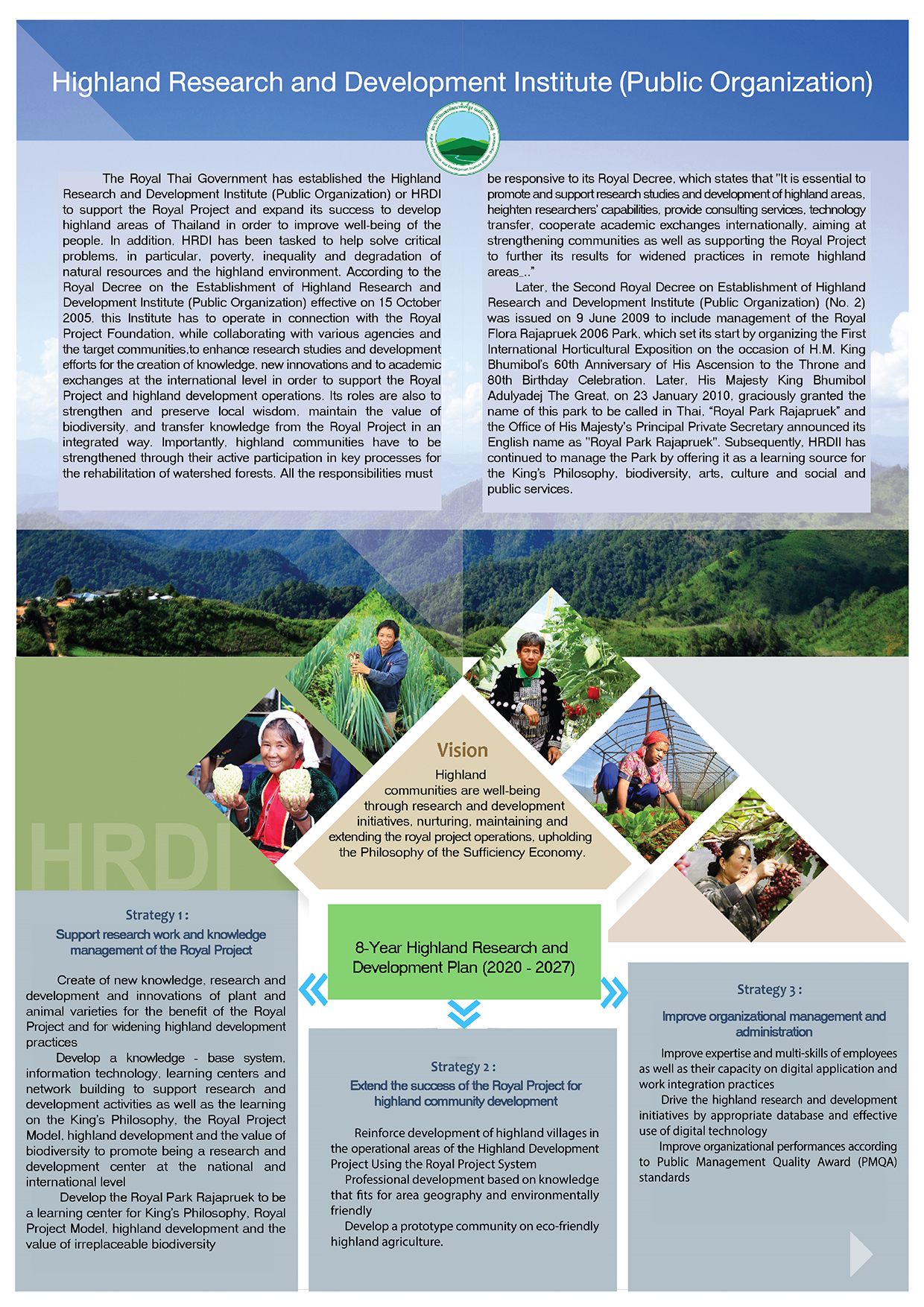
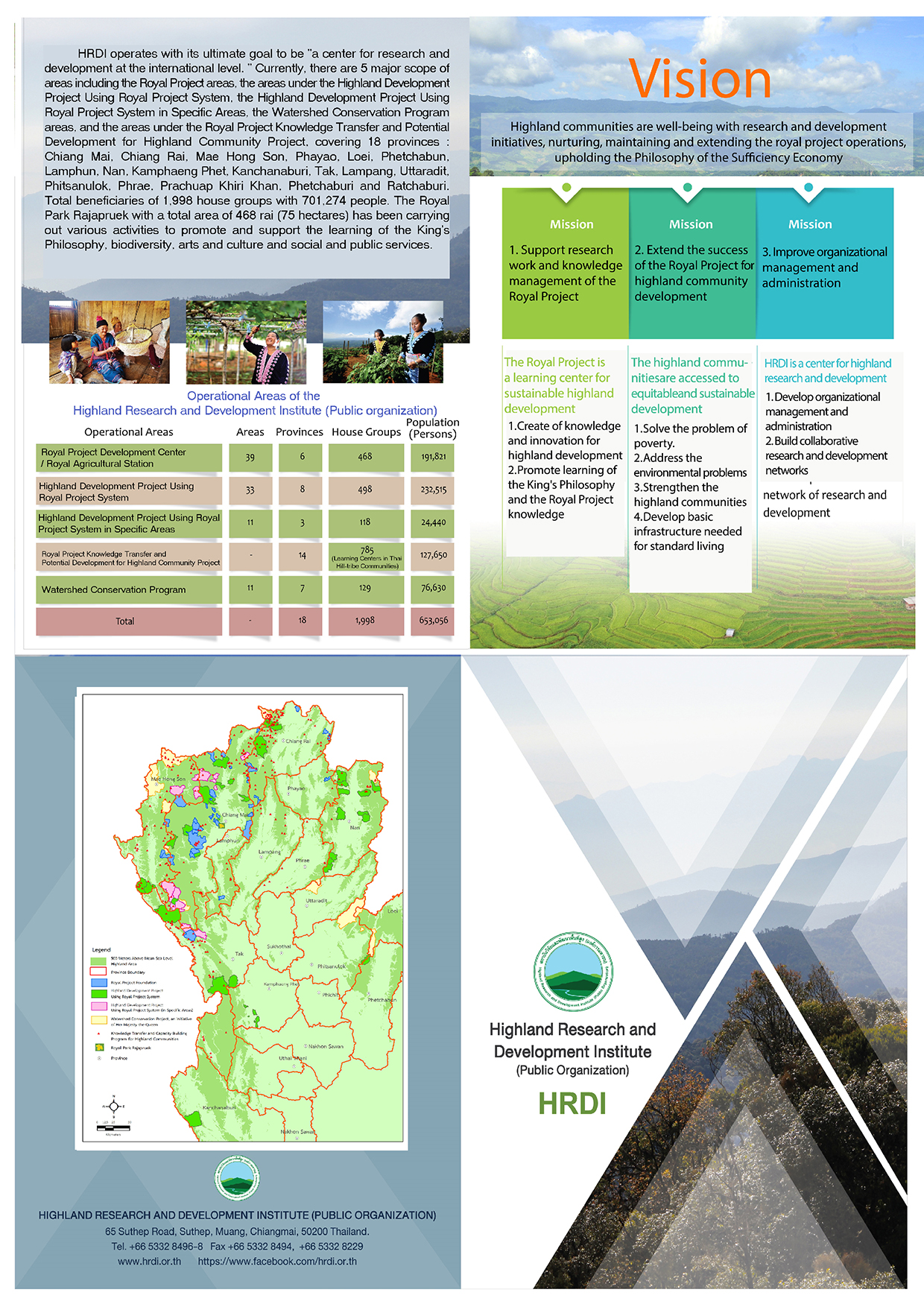
General Information
| About the Royal Project Foundation (RPF) |
| About the Highland Research and Development Institute (Public Organization) (HRDI) |
Contact Information
Foreign Relations Sub-division,
Highland Research and Development Institute (Public Organization) (HRDI)
Tel: +66 5332 8496-8 extension 1208
Email: [email protected]
Website: www.hrdi.or.th/rpfcon
QR Code:

Accommodations Information
For more information please kindly see the "Participants Announcement" page 5-6 (2.4)
Chiang Mai Attractions
| Day 1 – Sunday 22 December 2019 | ||
|---|---|---|
| Panel Discussion: Panelists | PPT | |
| Keynote Addresses: International Perspectives on Sustainable Land Use and Food Security on Highland | ||
| Alternative Development for Sustainable Development of Mountain and Highland Areas - Mr. Golam Rasul, Chief Economist of International Centre for Integrated Mountain Development (ICIMOD), Nepal | PPT | |
| Panel Discussion – Alternative Development: Voices from Farmers | PPT | |
| Huay Oun Village Headman, Oudomxay, Lao PDR | PPT | |
| Panel Discussion – Socio-Economic and Marketing Sustainability under Alternative Development | PPT | |
| Marketing and Logistics Development - Dr. Anchan Chompupoung, Assistant Director, Royal Project Foundation Office, Chiang Mai | PPT | |
| Health Care and Malnutrition - Prof. Emeritus Dr. Kraisid Tontisirin, Senator | PPT | |
| Community Forest Conservation and Development - Assist. Prof. Dr. Sapit Diloksumpun, Kasetsart University | PPT | |
| Panel Discussion – Experience on Alternative Development and Future Networking towards UN- SDGs - Mr. Wirat Prapthuk, Director, Highland Research and Development Institute | PPT |
last updated: 25 December 2019



